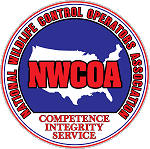Your Wildlife Professionals, Inc. remove and control chipmunks on residential and commercial properties in Virginia. It is not always important to know everything about chipmunks, but often clients need to know other information about chipmunks in Virginia. Below is some additional information about chipmunks, such as chipmunk habitat, where do chipmunk live, home range of a chipmunk, chipmunk food, chipmunk habits, average life span of a chipmunk, and chipmunk health concerns that you may want to know. If you live in Alexandria, Arlington, Bedford, Blacksburg, Bristol, Charlottesville, Covington, Chesapeake, Danville, Fairfax, Fredericksburg, Hampton, Harrisonburg, Lexington, Lynchburg, Loudon, Manassas, Martinsville, Newport News, Norfolk, Richmond, Roanoke, Smith Mountain Lake, Staunton, Virginia Beach, Waynesboro, Williamsburg, Winchester, Wytheville, or Yorktown Virginia and would like to know more about chipmunks, please give us a call.
CLICK HERE to find Your Wildlife Professional in Virginia.
Habitat:
Prefer timber borderland that has wooded banks, log heaps, stone piles, ground cover plants, or debris heaps.
Home:
The main entrance to the chipmunks burrow is usually about 2 inches in diameter and can be found under a well hidden stump, log pile, or rocks. The burrow system can be very extensive with several evident side entrances. These burrows can extend out to thirty feet and lead to a chamber that is about one foot wide and six to eight inches high. The chamber or den is lined with food and vegetation.
Home Range:
1/2 acre. Shifts with food abundance.
Food:
The chipmunk’s diet mainly consists of nuts, fruits, and seeds. They will also eat berries, mushrooms, some insects, small frogs, small snake, and salamanders.
Habits:
They are active throughout the day. Mostly early morning and late afternoon.
Hibernation:
In early winter the chipmunk will hibernate until late February to early March depending on the weather.
Average Life Span:
2 - 5 years in the wild. 8 years in captivity.
Other:
Chipmunks have been timed to run at a speed of eleven feet per second.
Health Concerns
Mites, fleas, ticks, botfly larvae, and roundworms parasitize chipmunks. Chipmunks serve as a host and can transfer Lyme, Ehrlichiosis, and Babesiosis bacteria to ticks.
CLICK HERE to find Your Wildlife Professional in Virginia.







